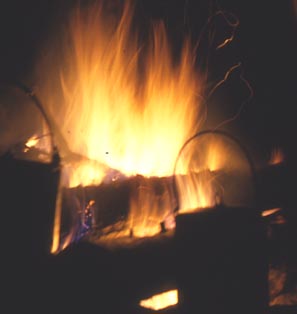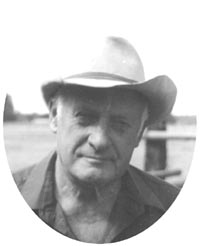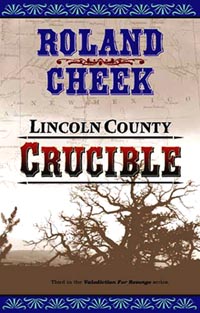a weblog sharing info on outdoor skills and campfire musing by a guy who spends a bunch of time in pursuit of both
CULTURE
WHERE -
TALES ARE TOLD OF
Welcome to Roland Cheek's Weblog
Roland is a gifted writer with a knack for clarifying reality. Looking forward to more of his wisdom
- Carl Hanner e-mail
Winston Churchill once said: I contend that for a nation to try to tax itself into prosperity is like a man standing in a bucket and trying to lift himself up by the handle.
George Bernard Shaw wrote: A government which robs Peter to pay Paul can always depend on the support of Paul.
Or how about this from Pericles in 430 B.C.: Just because you do not take an interest in politics does not mean politics won't take an interest in you.
To access Roland's weblog and column archives
Click Here
Tip o' the Day
Back a few years ago, I wrote a newspaper column advancing the theory that 20 percent of elk hunters take 90 percent of all elk taken. The idea behind that hypothesis is those few elk hunters are the ones who devote sufficient time to understand elk habits and habitats.
Dick Bradshaw, who dwelled in Kremlin, Montana, carried the idea farther in a letter dated Oct. 30, 1995. Perhaps with hunting season but a few weeks away, I should once again share a few excerpts from Dick's letter:
"Those 20% of hunters that shoot 90% of elk, I believe, are not those who feel that heavy magnum rifles are required to kill elk. And they are not the ones who use these cannons to attempt to kill elk at 500 yards. These guns belong primarily to that 80% of hunters who have a one-in-eight chance of killing an elk every five years (but have probably crippled more than one in the same period by blasting across canyons at animals that are too far away to shoot at accurately).
"I have shot competition for most of my life. I have won many awards in trap, in skeet, in smallbore, and have fired more rounds in one year than most people will fire in a lifetime. What this has taught me is simply this: you should not be shooting a gun you cannot shoot well because you are afraid of it. You would never get the 'macho' hunter to admit that his subconscious mind tells him to flinch. But you ask any competion shooter if he can remember losing a match because he flinched and he will tell you the date, place, and time it occurred. Yet how often do we see a man choose one of these magnum rifles for his 120-pound wife which knocks her earrings off every time she pulls the trigger."
Dick summarizes:
"1. A person should only shoot the largest gun that he or she can shoot well. The caliber of the gun [with recoil in mind] should be selected to fit the body stature of the individual.
"2. Practice, practice, pratice. Then practice some more.
"3. Know the capabilities of the rifle. Do not trust to luck that you might actually hit something. You won't.
"4. Know the capacity of the animal to take a misplaced shot and limp away to die a painful death. Realize the importance of passing by marginal shots.
"5. Respect these beautiful creatures. They are our heritage, here for us to enjoy, to hunt, and to watch in all their magnificence."
It's a pity there's no room for Dick's entire letter; he cites many examples, including how he trained his youthful, 80-pound son to became a master marksman. (The man sent along targets grouped by the 12-year-old for my perusal--I'd be proud to shoot so well.
I'm grateful to Dick Brandshaw for taking the time so many years ago to share his knowledge. All of us should pledge to pay attention to the truth when we hear it.
Ethan Lester, the 13-year-old Camarillo, California lad who exchanges e-mails not only says his younger brother is hooked on my Valediction For Revenge Western series, but now he says:
"My dad and my grandma just started reading your books and they love them. Whenever my grandma is over that's all she talks about Jethro and Susan."
The Valediction For Revenge series that Ethan's brother, dad and grandma is reading begins with Echoes of Vengeance
SNOW: THE SILENT INVADER
Most weather elements -- rain, wind, hail -- announces their presence, even at night, when the outdoors person is in a tent or cabin, usually waking and alerting him or her so they can adequately prepare for the next day's adventure. Not so with snow. snow steals silently in, kissing the canvas oh! so silently -- as happened to two friends of mine. . . .
We'll call them Stan and LaVern because that's their real names; surnames aren't important. It was the day before Sunday's opening of general hunting season, several decades ago. The weather was sunny and warm when the two arrived at the Bear Creek Campground, just outside Glacier National Park, beyond the well-known goat lick viewing area on U.S. Highway 2, east of Essex. That campground in, of course, long gone, casualty of the disastrous 1964 flood that resulted in massive highway reconstruction.
Figuring to hunt up the Big River Trail, into the Flathead's Middle Fork, the two friends set up a small 10 X 12 canvas "cabin" tent, planning to spend a week in search of the wily elk.
The boys surveyed their campste, spotted two small fir saplings growing the right distance apart to allow their tent between. Time, it seems, was of the essence, so the partners agreed to forego their normal search for a proper ridgepole for their tent; a taut rope between the saplings would no doubt do.
Soon, with tent spread and guy ropes tidily stretched from each side, the hunters settled down to hoist a glass or two, cook supper, and snuggle into their respective sleeping bags. As they slipped into the down, one of them asked, "Is it getting colder? What do you think?"
The first snowflake kissed their tent about the same time both began softly snoring. By midnight, six inches had accumulated, its weight sagging and stretching the rope serving as their tent's ridgepole and beginning to pull the top of each evergreen toward the other. Still, snow piled up . . . until eighteen inches of heavy, wet snow had fallen. Then the clouds parted above the white land -- and the flattened hump between two queer, bent-to-the-ground fir saplings.
When Stan's eyes fluttered open, it was to a strange filtered light like nothing he'd ever seen. The man was lying on his back. He yawned and tried to lift a hand to his face to stifle his open mouth and brush sleep from his face. But he couldn't move his arm! So he tried moving his left arm, to no avail! Then his feet! "LaVern!" the man cried. "LaVern! Wake up! I've had a stroke! I'm paralyzed!"
LaVern, lying on his side, attempted to roll and bolt upright against the close-pressed tent and eighteen inches of heavy, wet snow covering the top of it. "Oh my God!" he cried. "Me, too!"
It was a good half-hour before the two would-be hunters overcame their paralysis and wormed from sleeping bags and flattened tent into an all-white world. They were a hundred yards from the as-yet unplowed highway, driving a two-wheel-drive pickup with slick tires all around. They had no snow shovel.
Fortunately, someone in the campground did have a shovel, but they had to wait in line to use it. Then someone else drove a World War II surplus U.S. Army Jeep and, with the Jeep working a shuttle, most campers beat a retreat a few miles up the road to the fortuitously well-stocked Snow Slip Inn where they spent a comfortable opening day of hunting season lying about the elk they surely would've taken . . .
. . . IF!
Roland Cheek wrote a syndicated outdoors column (Wild Trails and Tall Tales) for 21 years. The column was carried in 17 daily and weekly newspapers in two states. In addition, he scripted and broadcast a daily radio show (Trails to Outdoor Adventure) that aired on 75 stations from the Atlantic seaboard to the Pacific Ocean. He's also written upwards of 200 magazine articles and 12 fiction and nonfiction books. For more on Roland, visit:
www.rolandcheek.com
Recent Weblogs
Tuesday, October 7, 2008
for more info about these and other Roland Cheek books
There's a bunch of specific info about Roland's books, columns, and archives. By clicking on the button to the left, one can see Roland's synopsis of each book, read reviews, and even access the first chapter of each of his titles. With Roland's books, there's no reason to buy a "pig in a poke."
for detailed info about each of Roland's books
Read Reviews
Read their first chapters
For interested educators, this weblog is especially applicable for use in history, economic, and government classes, as well as for journalism students.
Roland, of course, visits schools. For more information on his program alternatives, go to:
Books 2 & 3 are set amid New Mexico's violent Lincoln County War
Book four in the Valediction For Revenge series, Gunnar's Mine, is set in Colorado mining country, as is the sixth and final book in the series, The Silver Yoke
Book five in the series is Crisis On the Stinkingwater, and it's set around present-day Cody, in what is now called the Shoshone River Country
I knew you were a good writer, but I never before put you in the class of Michener and Clancy. You spin a good yarn and don't let it drop for a minute. You handle dialogue extremely well, and the action scenes are outstanding. You have no reason to venture so carefully into the world of novelists.
- Jack Oliver / Pittsburgh, PA
to send this weblog to a friend
to tell Roland what you think of his Campfire Culture weblog
source links for additional info
to visit Roland's newspaper columns and weblog archives
NEXT WEEK:
HUNTING CAMP DEMOCRACY
www.campfireculture.com








